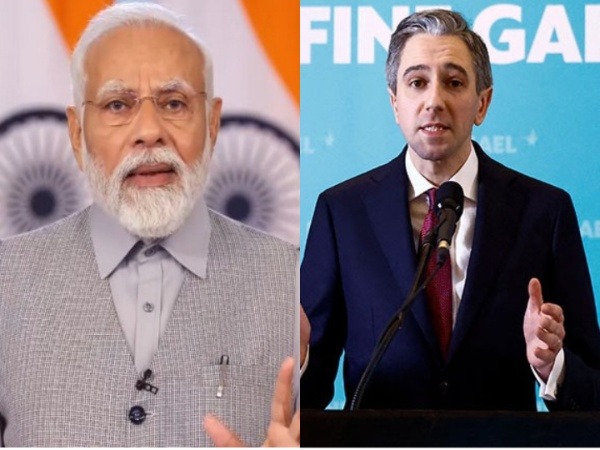Sinn Fein's Stumble: Ireland's Unexpected Political Shake-Up
Irish Prime Minister Simon Harris may call an early national election after Sinn Fein's disappointing performance in local council polls. Sinn Fein's decline from a leading position in opinion polls is attributed to unclear stances on key issues like immigration. This sets the stage for potential political upheaval in Ireland.

Irish Prime Minister Simon Harris could be tempted to call an early national election after rival Sinn Fein flopped at local council polls, upending expectations that the pro-Irish unity party was set to govern Ireland for the first time.
Sinn Fein, the former political wing of the Irish Republican Army, saw a commanding three-year opinion poll lead melt away in the run up to Friday's council elections, before it picked up just 12% of the vote, an even worse outcome than expected. One senior Sinn Fein lawmaker said he had no idea why it had gone so badly wrong.
The combined 46% captured by Harris' Fine Gael and his main coalition partner Fianna Fail could convince Harris to call the general election sooner than the March 2025 deadline, with November now seen as a possible option. Harris told reporters he had no such plans.
The potentially insurmountable hurdle for Sinn Fein is that with Fine Gael and Fianna Fail wanting to govern together again without them, Sinn Fein would likely need to finish well ahead of both parties to cut off their rivals' path to re-election. Failing to enter government for the first time would be a major setback to its ambition of seeking a referendum on unifying with Northern Ireland, the British region where it is already the lead party.
Its stunning slide from 35% in surveys as recently as October coincided with immigration challenging the housing crisis at the top of voters' concerns. Housing spokesman Eoin O'Broin said Sinn Fein was partly punished for not clearly articulating its position on immigration. The left-wing party has been caught between its traditional working class voters who are more sceptical on the issue, and its newer, younger middle class supporters concerned about migrants' rights.
That bucked a wider trend in European parliamentary elections over the weekend where voters turned to right-wing, or opposition, parties to protest over issues such as migration. WORRYING TRENDS FOR SINN FEIN
Sinn Fein was well behind its two main rivals in the first of Ireland's three European election areas to declare partial results. Under Ireland's electoral system, it will take a number of days to complete all the counts. In Ireland, exit polling published on Sunday also showed some other worrying trends for Sinn Fein.
Its previously iron-clad grip on younger voters was absent across the 949 council seats, with just 13% of those aged between 18-34 saying they voted for the party, compared to 21%who chose Fine Gael. The survey also suggested deficiencies in its campaign, with 18% of voters saying they had met a Sinn Fein candidate compared to 34% for Fine Gael and 35% for Fianna Fail.
"People assumed after the last general election (when it topped the poll on 25%), that Sinn Fein had this incredible political machine. I think the reality is it is very, very weak," said TU Dublin politics lecturer Kevin Cunningham, who ran the Ireland Thinks polling day survey of almost 3,000 voters. Sinn Fein even faltered on its trump issue of the lack of affordable housing, polling level with Fianna Fail among those who rent from the local council, trailing Fine Gael among private renters and both parties of those who live rent free, for example with their parents.
Stefan Muller, assistant politics professor at University College Dublin, described those findings as "astonishing." However the survey also showed just how volatile Irish politics has become, with almost half of voters only making up their mind in the week of polling. Turnout was also low.
Results also confirmed that in local elections in Ireland people tend to vote more for a particular person than the party, something that favoured Fine Gael and Fianna Fail's much larger number of incumbents. That will be a lesser trend at national elections, giving Sinn Fein a glimmer of hope.
"The silver lining is these are people we can get back," O'Broin said of the prospective voters who stayed at home. "We have an awful lot of work to do to convince those people to get out and vote for us in the general election."
(This story has not been edited by Devdiscourse staff and is auto-generated from a syndicated feed.)










